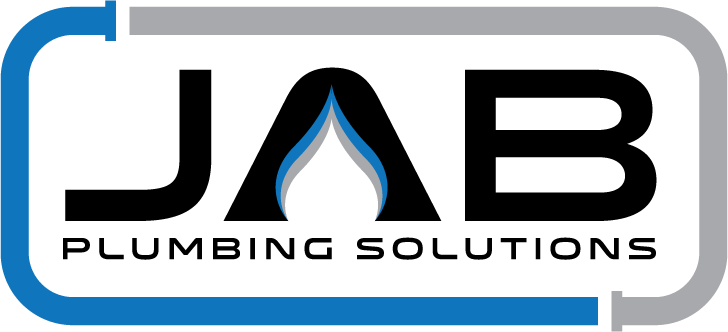We maintain our cars by having them serviced regularly. We maintain our home and gardens by mowing the lawn, removing weeds and cleaning. When it comes to our plumbing, however, most people are reactive rather than proactive. Waiting until things go wrong - as opposed to routine maintenance of the plumbing systems in your home - is both expensive and inconvenient. This article looks at the advantages of plumbing maintenance and some helpful tips on how homeowners can keep drains free from clogs.
Preventative plumbing could save you thousands
Plumbing bills often sky-rocket because property owners don’t pay enough attention to their drains and pipes. Being informed about your pipes and mindful about what you wash down the drains can help avoid costly plumbing emergencies. Regular plumbing maintenance is is a worthy investment because it means a plumber can uncover and fix small issues with the plumbing system before they turn into expensive problems.
What is plumbing maintenance?
There are two types of plumbing maintenance - the type that can be performed by a homeowner and the type that needs to be undertaken by a professional plumber. The former is mainly concerned with being careful about what you put down the drains while the latter requires specialist equipment such as plumbing cameras and jet blasting machines.
CCTV plumbing camera inspection of your pipes
A plumbing inspection of your pipes using a CCTV sewer camera will set you back a couple of hundred dollars. The information it provides, however, is well worth the investment because it provides high-resolution video evidence of the condition of the pipes and any work that needs to be done. A CCTV pipe inspection can reveal:
Sagging or damaged pipes
Hairline cracks that could eventually turn into a collapsed pipe
Small clogs that are forming or a buildup of debris in the pipes including grease, wet-wipes or sanitary items
The types of pipes on your property. If you live in an older house the plumbing pipes are likely to be made of either clay or steel, both of which are prone to deterioration over time. A newer residence is likely to have PVC pipes which are much more durable. Older pipes should be inspected for issues more frequently than newer pipes.
Where the pipes are located, the size of the pipes and the configuration of pipes
Tree root intrusion
A CCTV inspection will provide a blueprint of any future action that needs to be taken. Let’s look at the example of tree root intrusion. A drain inspection could reveal a small amount of root penetration in a hairline crack or loose joint. Once you have this information a local Sydney plumber can remove the tree roots and patch up the area of pipe where they are entering. If this issues isn’t uncovered in the early stages, the tree roots can continue to grow inside the pipes until the pipe is completely blocked. Tree roots can also crack pipes. Extensive tree root problems may mean replacing a large area of the sewer pipes and can end up costing upwards of $10,000.
If everything looks good you probably won’t need to arrange another CCTV inspection for a few years. If, however, there are some things you need to monitor an annual inspection could be beneficial.
Jet blasting and regular drain cleaning
The plumbing camera inspection may reveal a small clog forming that needs clearing out. Jet blasting is the most efficient method of drain cleaning available and it’s completely safe for your plumbing pipes. Jet blasting machines use powerful streams of water to blast through clogs and remove grease build-up and sediment from drain pipes. If there is no major clog, jet blasting can be performed in around one hour and costs approximately $300-$450. Annual jet blasting will remove any build-up, reducing the likelihood of expensive blockages occurring.
Plumbing maintenance for the homeowner / resident
Once the plumbing pipes have been inspected and cleaned it’s up to you and your family to maintain the drains. Namely, this just means being mindful about what goes down the sinks, tubs and toilets in the home. Drain are designed to transport wastewater away from the home, while toilets can also accommodate toilet paper and excrement. Everything else should be disposed of in the bin. Below are some tips on maintaining the condition of drain pipes:
Switch to a low-ply toilet paper to prevent clogged toilets caused by toilet paper
Don’t pour oil down the sink. Instead, pour it into a sealable container and dispose of it in the bin.
When washing greasy dishes or pots with animal fat residue remove as much of the grease as possible with a paper towel before washing them. Use lots of hot soapy water when washing greasy dishes
Install drain grates around the home to catch any debris such as hair or lint before it goes down the drain
Switch to a liquid soap in the shower so to prevent chunks of soap bar in the drain pipes
Reduce the amount of food scraps that go down the kitchen sink, being extra careful of food items that swell such as rice, grains and pasta
Remove sticks and leaves from stormwater drain grates and have the gutters cleaned out regularly
Keep a bin next to the toilet to make it as easy as possible for guests and family members to dispose of sanitary items in the correct method
Never flush ‘flushable” items down the toilet including flushable wet-wipes of flushable kitty litter
Book in plumbing maintenance in Sydney
If you would like to book in a CCTV inspection or jet blasting service in Sydney, call the experienced plumbers at JAB Plumbing Solutions. We have know-how and all the latest tools to keep your plumbing system and drains running smoothly. You can reach us on 1800 225 552.







